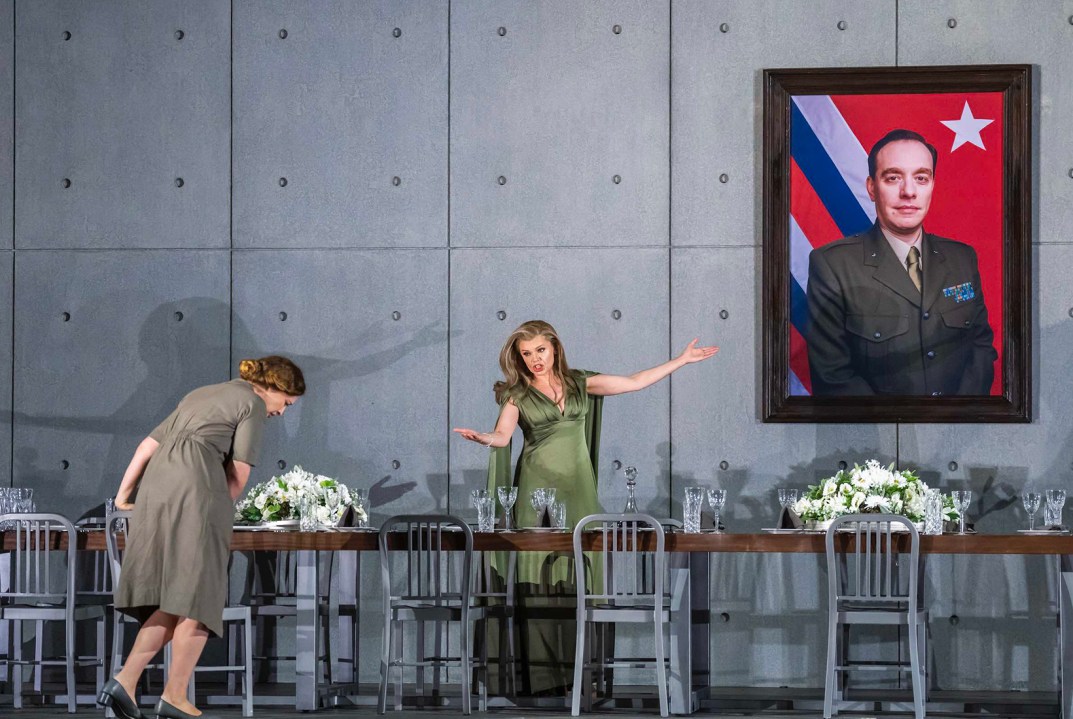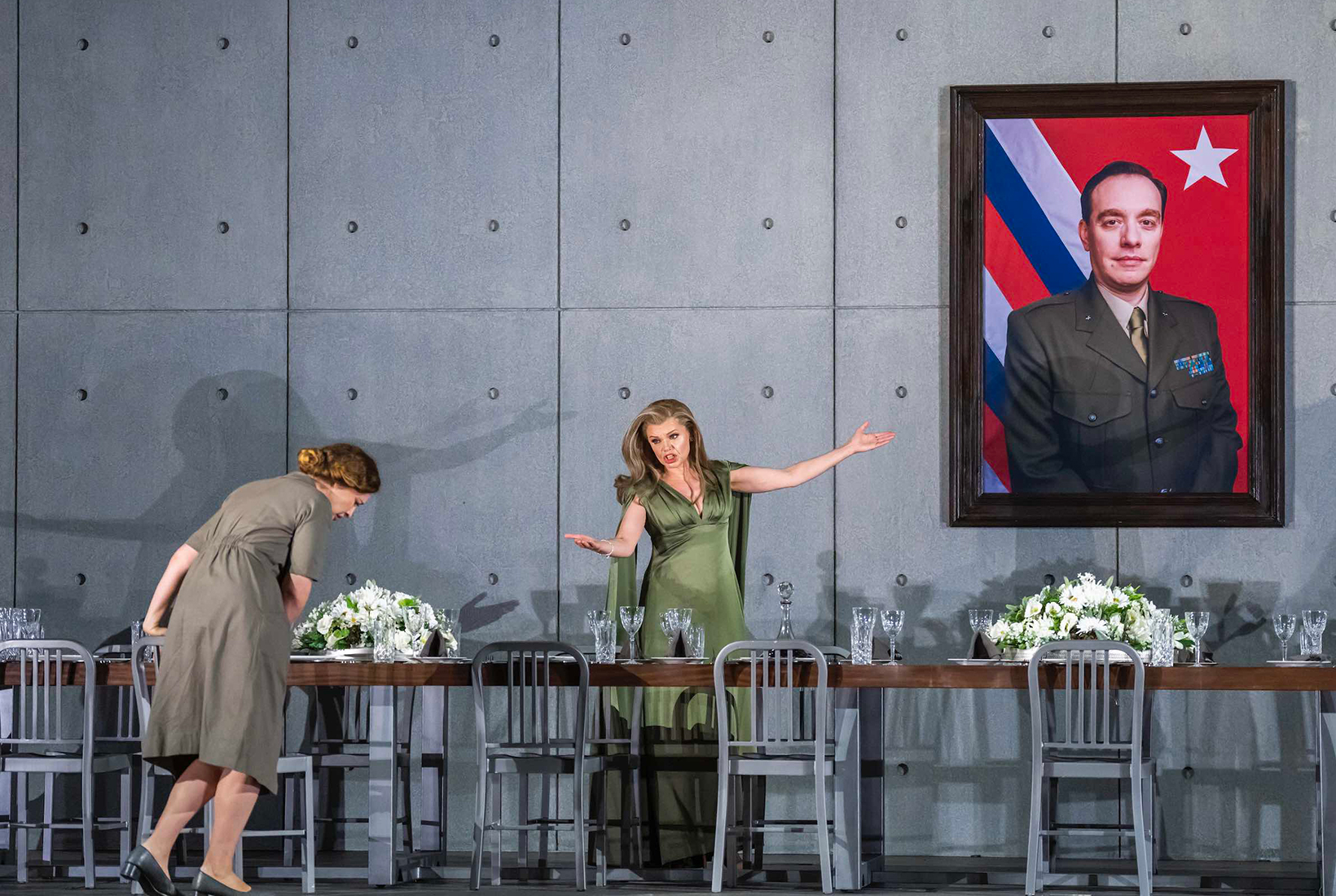Grey. More grey. So very, very grey. That’s the main visual impression left by Robert Carsen’s new production of Verdi’s Aida. Possibly a few older operagoers still think of Aida as a fabulous spectacle: horses, temples, caparisoned elephants and all the gilded splendour of the Pharaohs. But if you cut your opera-going teeth more recently than 1990 – and unless you’re going to one of the more lavish Ellen Kent efforts – you’ll know by now to expect nothing of the sort. Carsen places the drama within the towering walls of a government bunker in some unspecified modern military dictatorship, with the cast (even Aida and Amneris) dressed almost entirely in shades of khaki.
I say ‘unspecified’, but much of the imagery (flag-draped military funerals with shiny American coffins; back projections of smart-bomb footage) seemed to derive from the Iraq war, and the only recognisable flag was the Stars and Stripes. Obviously there haven’t been any more recent, more relevant instances of military aggression in the world. Verdi’s ballet sequences, meanwhile, were filled with leaping dancers in combat fatigues, inevitably evoking Madame Mao. After the virtuoso public ceremonial of the last month, it’s not a great time for singers and dancers to attempt military drill on stage. We’ve seen how the professionals do it, and far too recently.
Dean’s orchestra shimmers, pulses and emits eerie, sinking microtonal groans
But overall, designer Miriam Buether’s concrete blast walls make a suitably monumental substitute for pylons and pyramids, and the real problem is Carsen’s failure to generate any sense of intimacy at the heart of the epic setting. Left to themselves, characters gesticulated stagily at the audience, or stood far apart, isolated in the cavernous spaces. Too often, Amneris’s hatred (and Agnieszka Rehlis gave a wonderfully feline portrayal of toxic entitlement, swirling her silk cape as she prowled downstage) fizzled in the void; and such physical spark as flickered between Francesco Meli’s underpowered Radamès and Elena Stikhina’s Aida was never likely to set any passions aflame.








Comments
Join the debate for just £1 a month
Be part of the conversation with other Spectator readers by getting your first three months for £3.
UNLOCK ACCESS Just £1 a monthAlready a subscriber? Log in